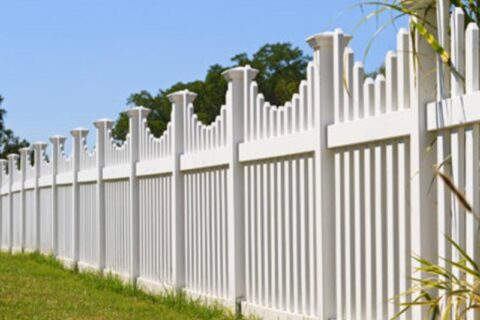How Long Does a Vinyl Fence Last on Average?
Vinyl fences have become a favorite for homeowners thanks to their durability, low maintenance, and attractive appearance. But how long does a vinyl fence really last? Let’s explore the factors that determine the lifespan of vinyl fencing and how you can get the most out of your investment.
How Long Do Vinyl Fences Last on Average?
On average, a vinyl fence can last between 20 to 30 years or more. Premium-quality vinyl fences that are properly installed and maintained can even exceed this range, providing decades of reliable performance.
Unlike other fencing materials, vinyl does not rot, warp, or attract pests. Its resistance to weathering and aging makes it a strong contender for long-term fencing solutions, especially in Florida, where the climate can be both a challenge and an advantage.
What Impacts the Lifespan of Vinyl Fences?
Several factors determine how long your vinyl fence will last:
1. Material Quality
High-quality vinyl fences are crafted with UV inhibitors and impact-resistant compounds that help them withstand harsh conditions. Cheaper vinyl options may fade, crack, or deteriorate more quickly, reducing their lifespan.
2. Installation
Proper installation plays a crucial role in the longevity of any fence. Professionally installed fences are more stable and less prone to damage from weather or everyday wear and tear.
3. Environmental Conditions
Florida’s weather can be both a blessing and a challenge for vinyl fences. The material is highly resistant to humidity and does not corrode like metal or rot like wood in Florida’s moist climate. However, prolonged UV exposure from the sun can cause discoloration over time if the vinyl lacks UV protection. Hurricanes and high winds may also strain or damage fencing.
4. Maintenance and Care
While vinyl fences are low maintenance, regular cleaning and inspections can extend their lifespan. Preventing mildew buildup, cleaning debris after storms, and addressing minor damage quickly can make a significant difference.
How Does Vinyl Compare to Other Fence Materials?
Vinyl fences outlast many common fencing materials, making them a cost-effective choice in the long run:
|
Material |
Average Lifespan |
Maintenance |
|
Vinyl |
20-30+ Years |
Low |
|
Wood |
10-15 Years |
High |
|
Chain Link |
15-20 Years |
Moderate |
|
Aluminum |
20-30+ Years |
Low |
How to Make Your Vinyl Fence Last Longer
If you want your vinyl fence to stand the test of time, follow these simple tips:
- Clean Regularly: Use a mild soap and water solution to remove dirt, grime, and mildew. This is especially important in Florida, where humidity can lead to mold growth.
- Avoid Physical Damage: Be cautious with lawn equipment, toys, or vehicles that might cause scratches or dents.
- Inspect After Storms: Check for cracks, loose posts, or other damage after Florida’s heavy rains or storms, especially during hurricane season.
- Perform Repairs Quickly: Address any minor damage before it worsens. Small cracks or loose components can weaken the fence over time.
How to keep your vinyl fence looking new
When Should You Replace Your Vinyl Fence?
Even with proper care, a vinyl fence may eventually need replacement. Common signs include:
- Discoloration: Severe fading or yellowing that cleaning can’t fix.
- Cracking: Large or numerous cracks that compromise the structure.
- Warping or Sagging: Posts or panels that are bent out of shape.
- Structural Weakness: Sections that no longer stand firm or straight.
If your fence is showing these signs, it might be time for an upgrade. A new vinyl fence can restore the safety, privacy, and curb appeal of your property. At Florida State Fence, we offer high-quality vinyl fencing solutions built to withstand Florida’s unique climate. Contact us today for a free consultation and professional installation to ensure your fence lasts for decades.


